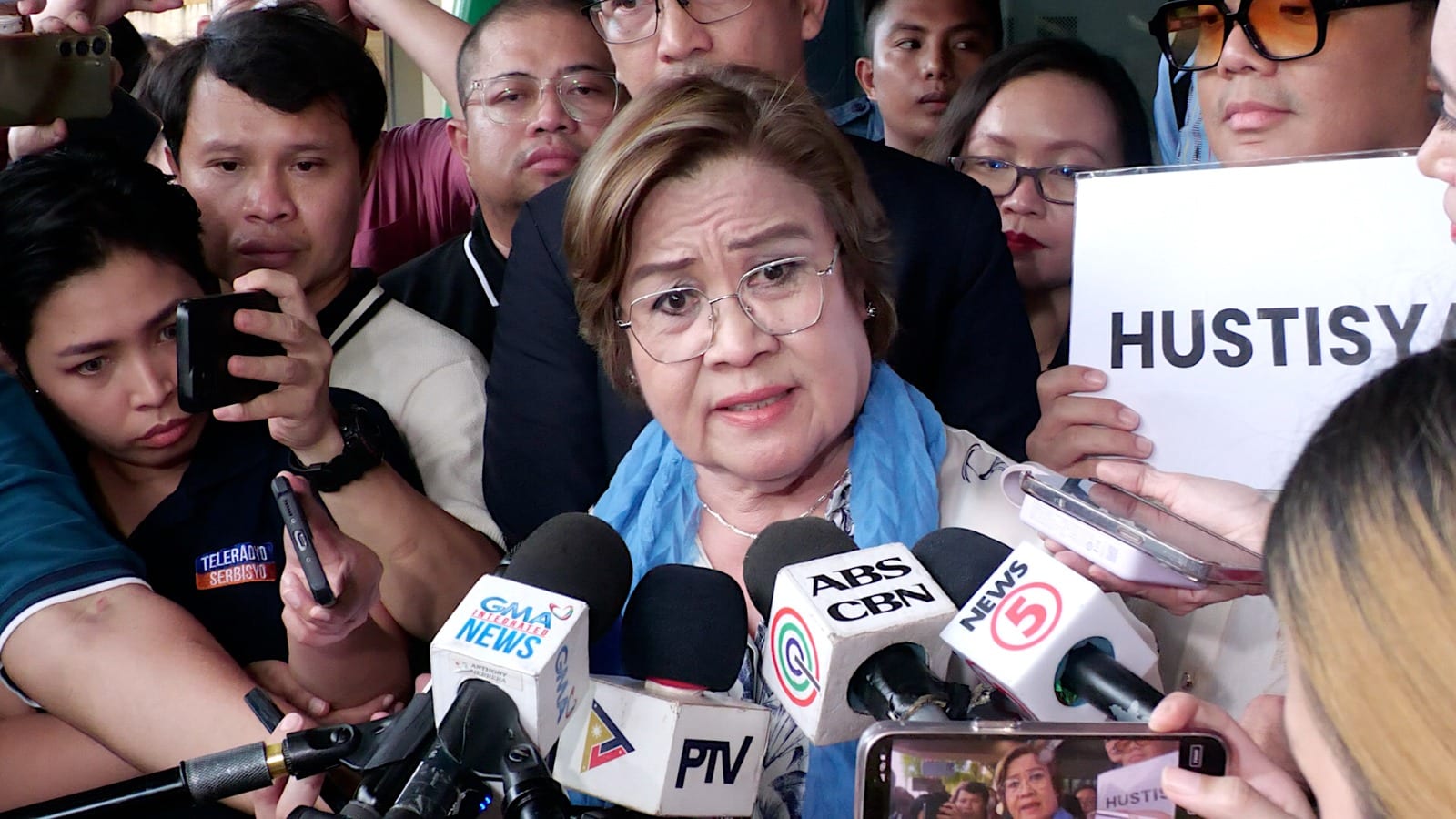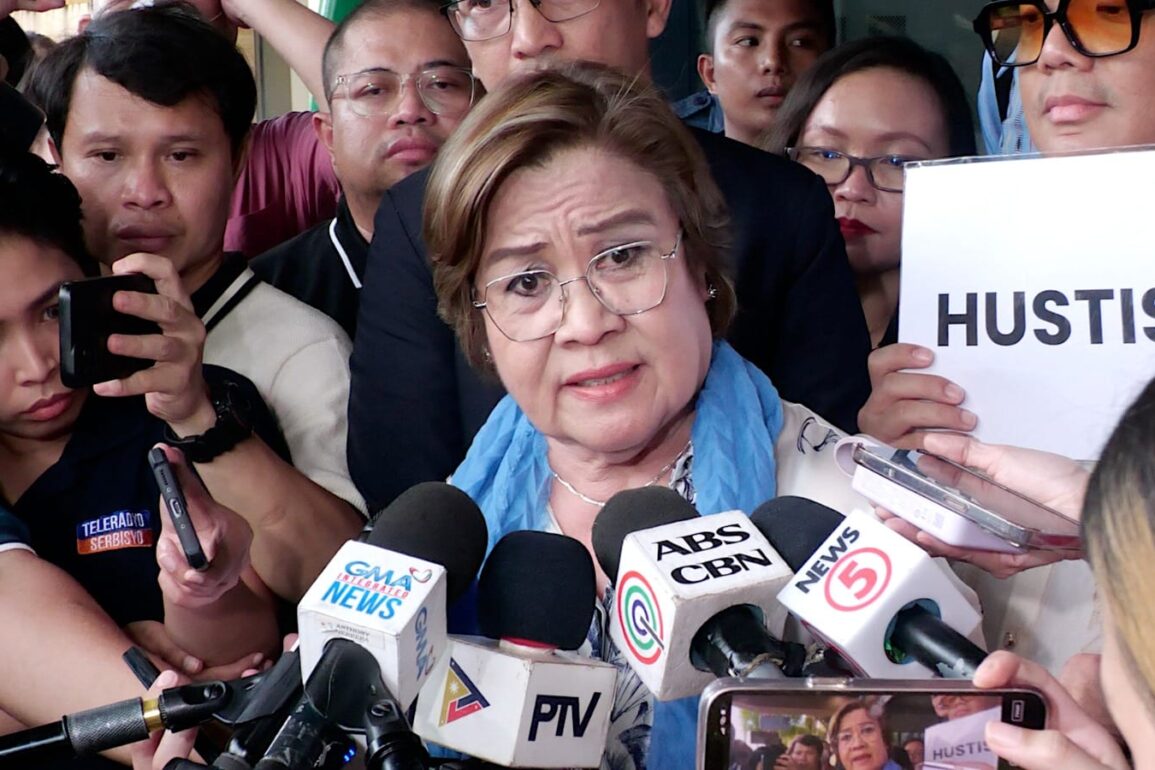
Former Senator Leila de Lima answers questions from the media in an ambush interview on Monday, June 24, 2024, after the Muntinlupa Regional Trial Court acquitted her in the last drug-related case filed by the Duterte administration. INQUIRER.net file photo/Ryan Leagogo
The Philippine government can cite the recent acquittal of former Sen. Leila de Lima as proof that the country’s justice system is working, thus bolstering the argument against letting the International Criminal Court (ICC) look into the “drug war” killings that occurred during the Duterte administration.
President Marcos aired this view on Thursday as he stood firm on his position not to allow the entry of ICC investigators into the country.
READ: De Lima acquitted in last drug case
FEATURED STORIES
“Well, maybe this is something we should show the ICC: [that] the judiciary is working properly, our investigative services are working properly and former Senator De Lima has been acquitted,” Mr. Marcos told reporters on the sidelines of the 2024 National Employment Summit at The Manila Hotel.
On Monday, De Lima was cleared by the Muntinlupa City court of the last of the three-drug trafficking cases filed against her by the Department of Justice under then-President Rodrigo Duterte.
The dismissal of the case was hailed as a complete vindication for the ex-senator and justice secretary—and a staunch critic of Duterte’s brutal antidrug crackdowns since his years as Davao City mayor—who had spent about seven years in jail while on trial.
Mr. Marcos declined to elaborate on his comment on the court decision. “I don’t know what further comments there could be. She (De Lima) went through trial, and was acquitted, so…”
“We still stay with our position that the ICC has no jurisdiction in the Philippines because we have a working police force, we have a working judiciary, and do not require any assistance in that regard,” he said.
But he said the government would not interfere if De Lima, back in the front line as one of the leaders of the political opposition, would actively help the ICC prosecutors by providing material evidence on the drug war killings.
“She has said that she would like to help the ICC, but that’s between her and the ICC,” he said.
UN hails ruling
On Wednesday, the United Nations and the country’s Commission on Human Rights (CHR) hailed the court decision acquitting De Lima.
For Jeremy Laurence, spokesperson for the Office of the UN High Commissioner for Human Rights, “her case reflects wider issues concerning the targeting of human rights defenders and other dissenting voices.”
READ: De Lima’s quest for vindication and justice
Laurence urged the Marcos administration to prioritize pending legislation that would further protect human rights watchdogs in the country.
“Accountability for human rights violations, in particular the review panel the government announced four years ago to investigate antidrug related killings of thousands during the previous administration, remains out of reach,” he noted.
Should serve as ‘catalyst’
The CHR called the Muntinlupa court decision “a significant victory for justice and the rule of law,” drawing a lesson from De Lima’s case.
“As Senator De Lima fully regains her freedom, her case must serve as a catalyst to continuously sound the alarm to uphold justice, protect human rights, and foster an environment where dissent is valued and respected without fear of retribution,” the CHR said in a statement.
For Montse Ferrer, deputy regional director of Amnesty International, De Lima’s “full freedom and vindication” ended her years of “arbitrary detention” and “relentless political persecution.” —WITH A REPORT FROM RUSSEL LORETO
EDITORS’ PICK
This post was originally published on this site be sure to check out more of their content.









